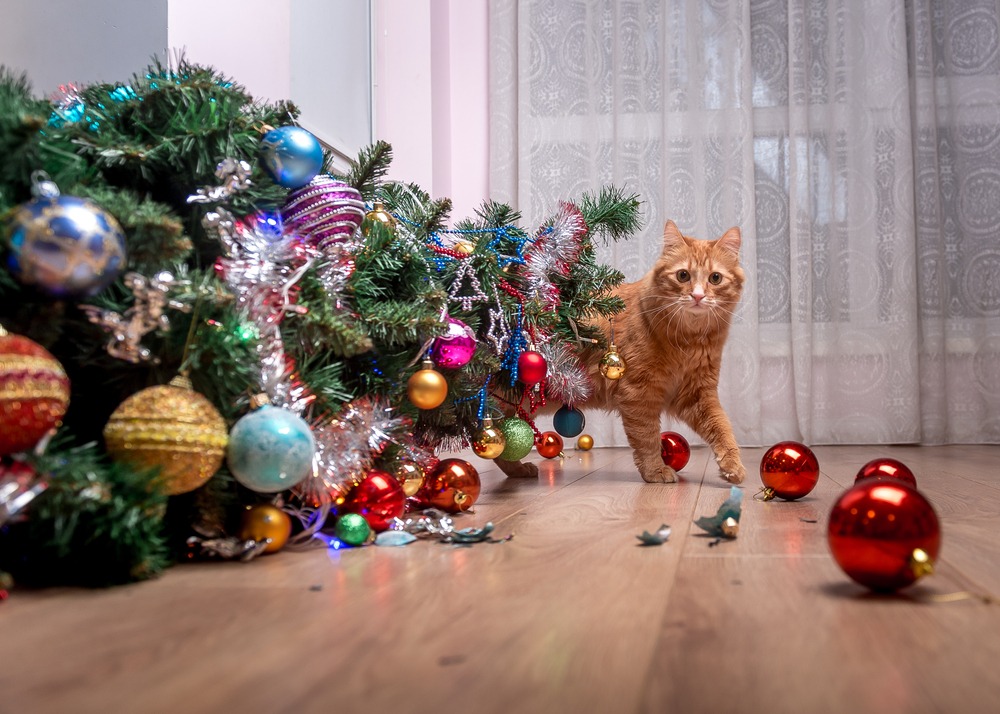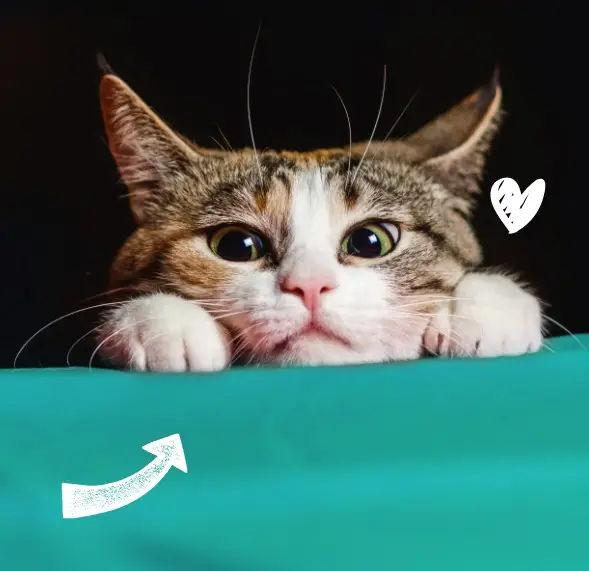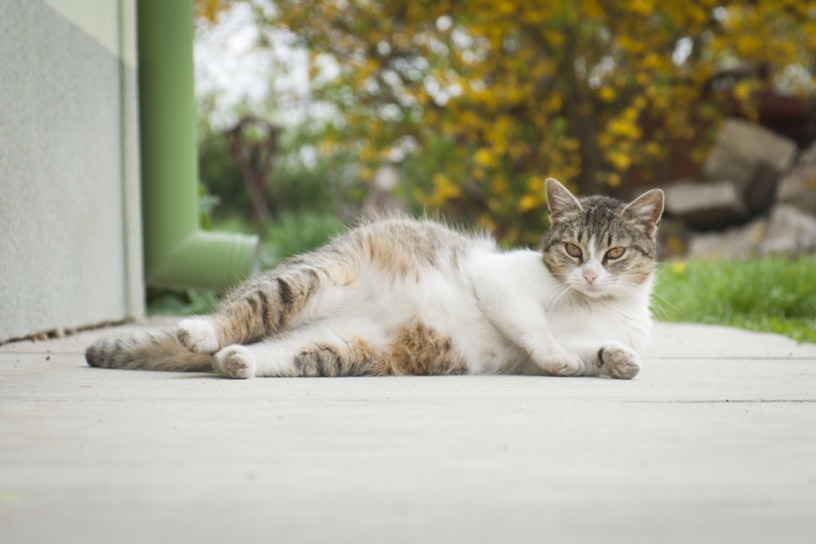
Finding out that your cat is pregnant is exciting but it’s also a huge responsibility. Pregnancy can be a stressful time for your cat and as her owner, you need to make sure that you’re prepared to keep her happy and healthy throughout the process. If your cat isn’t spayed and you’re planning to breed her, it’s important to know the symptoms of pregnancy and what you can do to support your feline friend during her pregnancy and labour.
This handy guide looks at cat pregnancy symptoms and the signs of labour to help you be the best pet parent possible.

Similar to humans, cats experience a period of peak fertility every three weeks, so there’s plenty of opportunities for her to fall pregnant. Cat pregnancy normally lasts between 63 and 67 days, but it can be difficult to know the exact point at which a cat fell pregnant. If you’re looking to avoid a surprise litter of kittens, it’s advised to get your cat spayed before her first season.
Cat pregnancy symptoms
Although the best way to find out that your cat is pregnant is to take her to the vet, there are several signs that you may be able to spot two or three weeks after conception. After approximately 15-18 days of pregnancy, your cat’s nipples will become enlarged and red. Your cat may also go through a stage of morning sickness. If you’re concerned about your cat’s vomiting or suspect that she is at all unwell in any way, contact your vet.
After a few weeks your cat’s stomach will start to swell but you should avoid touching it wherever possible to avoid hurting her or the unborn kittens. Your cat may also gain between 1-2 kg of weight depending on the size of the litter she’s carrying, and she may experience periods of lethargy.
Expecting cats also tend to have an increased appetite as their pregnancy progresses, which will contribute to their weight gain. They may show more maternal behaviour through purring and seeking extra attention from their owner. At about four weeks, your vet can take an ultrasound of your cat to confirm her pregnancy and determine how many kittens she’s carrying.
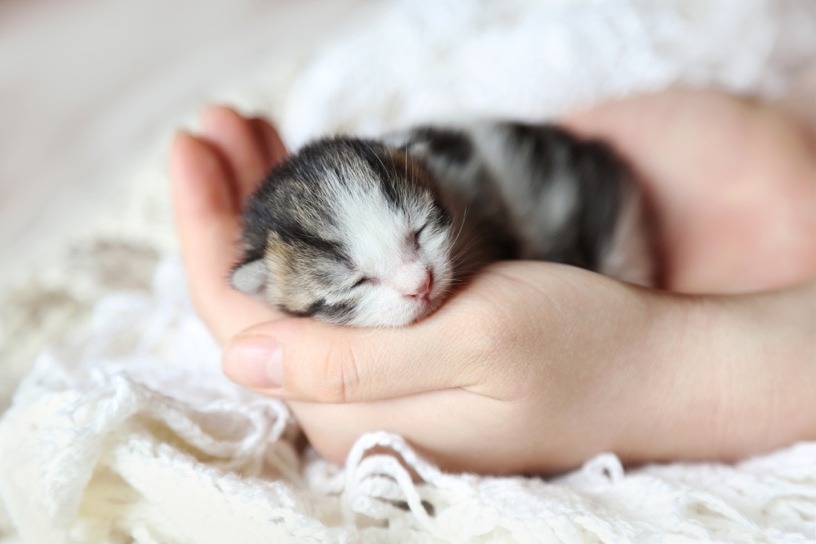
Signs your cat is in labour
As the big day approaches, you need to start making your house comfortable and safe in preparation for the impending birth. If you normally allow your cat to adventure out of the house, you should start keeping her indoors in case she goes into labour during one of her adventures. About two weeks before the due date, you may notice that your cat acts differently as she begins nesting.
To give your cat a safe place to go once labour starts, set up a medium-sized box with a low opening and line in with newspapers, old towels and soft blankets in a quiet corner of your house. There are several signs to look out for that indicate the kittens are on their way. If your cat refuses food, is restless and seems like she’s looking for a secluded place to settle, it could be a sign that her labour is about to start.
Right before giving birth, your cat may become more vocal, appear agitated and want to groom herself constantly. Delivery should start with strong abdominal contractions followed by some discharge. Most cat labours go smoothly and you shouldn’t need to interfere, but if you notice that your cat is bleeding or in severe distress, contact your vet immediately.
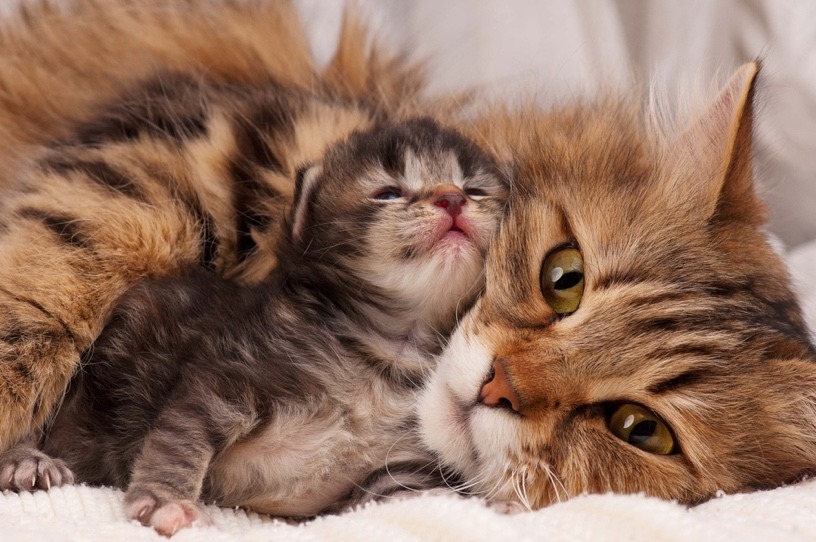
Caring for newborn kittens
While your cat will usually provide her kittens with warmth, care and food as soon as they’re born, it’s a good idea to learn what newborn kittens need in case she needs help. Newborn kittens should get all their nutrition from their mother’s milk, which is rich in antibodies and helps to protect kittens against disease for their first six weeks. It’s essential that they feed within two hours of birth to absorb these antibodies.
Kittens who aren’t getting enough nutrition from their mother may cry and constantly try to latch on to her teats. If the newborn kittens are distressed, they will be restless, cry constantly, stay awake for long periods or stop feeding. If the kittens are rejected by their mother, or she is unable to feed them, you may need to hand feed them with a syringe and supplement formula to ensure healthy development. For more information, take a look at our kitten care guide.
If you’re at all concerned that your cat’s newborn kittens are in need of urgent care, contact your vet for advice or find a vet in your local area here.
The Webbox Difference
Here at Webbox, we try to see the world from a cat’s point of view so we can understand what they want, not just what they need. We put all our love, creativity and fun into everything we make, producing nutritional food and balanced treats designed to keep you and your feline friend happy and healthy. For fantastic food, tasty treats and magical mousse, shop our cat food range today.

Shop for Dogs

Personalise your search:
Shop for Cats

Personalise your search:
Our Most Popular Products


Webbox Lick-e-Lix with Beef Cat Treats 75g
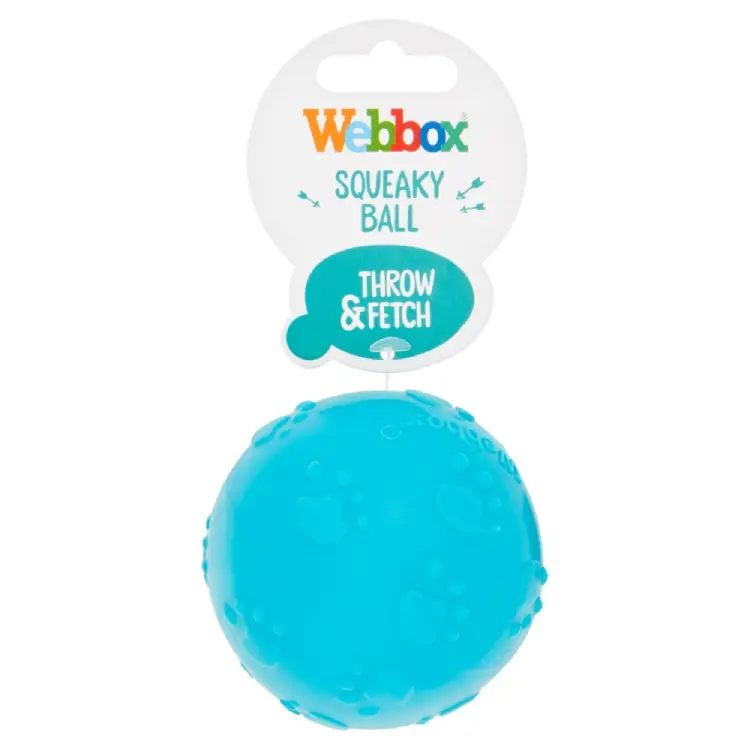

Webbox Squeaky Ball Dog Toy



Webbox Lick-e-Lix Cheese & Taurine Cat Treats 75g
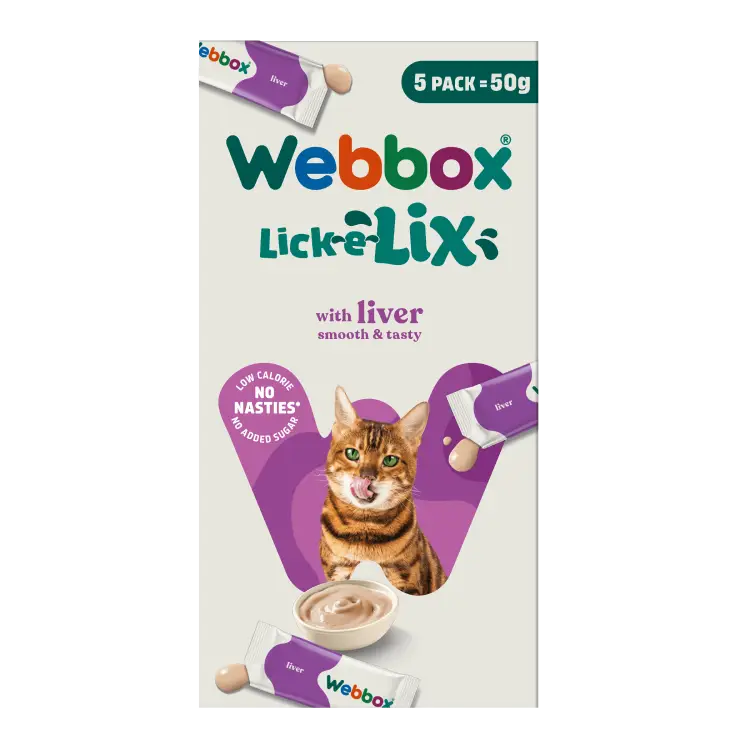

Webbox Lick-e-Lix Liver Cat Treats 50g


Webbox Lick-e-Lix Chicken Cat Treats 75g



